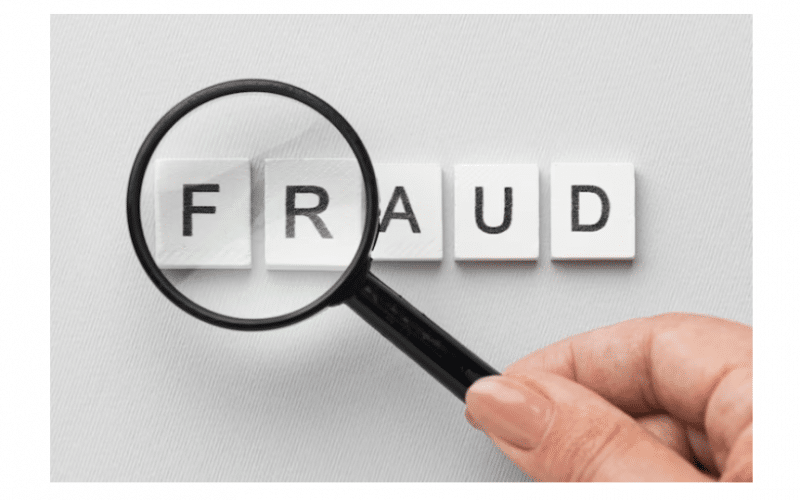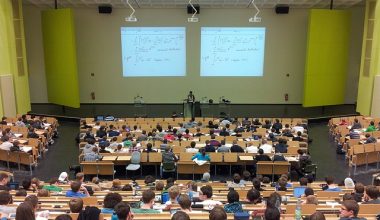There are more opportunities for fraud as communication and technology develop. A fraud investigator is one who works to spot fraudulent activity and stop it from happening again. It might be useful to learn the steps required to become a fraud investigator if you’re interested in doing so.
In this article, we go over what a fraud investigator does, how to become one, and the most common queries people have about the profession.
Who Is A Fraud Investigator?
A fraud investigator is an expert who looks into various types of fraud, including financial, business, and insurance fraud.
Additionally, fraud investigators are the first to gather information about alleged fraud or other illegal business conduct. A fraud investigator is a go-to specialist for investigating insurance fraud, financial fraud, procurement fraud, asset recovery, cyber fraud, healthcare fraud, retail fraud, and other areas because of their skill set and extensive knowledge of fraud laws, evidence gathering, and interviews.
Furthermore, a fraud investigator can be part of a team or the leader, working with other team members to handle suspicious activity. In charge, they report to a department head, such as corporate security, compliance, or audit. They monitor, investigate, and resolve fraudulent activity, implementing strategies to prevent fraud and financial crime, and mitigating business risks.
What Is the Role of a Fraud Investigator?
Fraud investigators examine claims of insurance and credit card fraud to see if people or organizations have tried to deceive others for financial gain. Depending on the sector and field, different types of investigations may be conducted.
Additionally, fraud investigators can sometimes work for companies like banks, insurance providers, private detective agencies, the criminal justice system, and other businesses. The basic responsibilities of a fraud investigator include the following:
- Developing and putting into use preventative systems to reduce fraud.
- Interacting with vendors, law enforcement, and banks to look out for fraud and confirm information.
- Recognizing potential business threats, such as infringement, security flaws, and fraud incidents.
- Creating fraud analysis models to enhance a system’s effectiveness in a business.
- Recording all investigational processes.
- Conducting thorough, private investigations into claims of possible fraud.
- Interviewing potential sources of information on specific fraud allegations.
- Conducting asset searches, employee investigations, and background checks on suspects.
- Examining evidence to see if fraud took place, such as financial records and testimonies from victims.
- Composing thorough reports on your findings and delivering them to management.
- Communicating with fraud victims, law enforcement, and court personnel when a criminal or civil case is initiated.
- Giving testimony in criminal or civil proceedings regarding fraud cases.
What is the Job Description for a Fraud Investigator?
Institutions seek a skilled Fraud Investigator who will be in charge of locating and handling questionable or suspicious insurance claims while offering advice and strategic recommendations through expert reports.
Additionally, the ideal applicant should be passionate about research and the analysis of investigative evidence, in addition to having demonstrable analytical skills.
What Is the Best Salary for a Fraud Investigator?
Fraud investigators are full-time employees with varying salary levels depending on employment status, location, and education. In the U.S., the average hourly salary is $19, with some positions ranging from $15 to $39.
What Skills Does a Fraud Investigator Need?
- A bachelor’s degree in a related field, such as social work, criminology, or finance.
- At least two years’ worth of professional experience as a fraud investigator for financial institutions or governmental organizations.
- Excellent knowledge of pertinent laws, such as the Police and Criminal Evidence Act.
- Solid proficiency with report writing software and an understanding of analytics.
- Outstanding research abilities.
- A strong desire to succeed and conduct an in-depth investigation.
- Excellent communication skills, both in writing and speaking.
- Strong negotiating abilities and the capacity to handle challenging circumstances.
How To Become A Fraud Investigator
Here are the best steps to take as you embark on a career as a fraud investigator:
#1. Obtain educational certificates:
An associate’s or bachelor’s degree in accounting, criminal justice, business administration, fraud management, or economic crime may be required by some employers. Entry-level fraud investigators typically need a high school diploma or its equivalent.
Additionally, investigative accounting, litigation support, fraud data analysis, and other crucial skills can be learned by taking forensic accounting and criminal justice courses.
#2. Acquire experience and knowledge in the field:
Consider interning or looking for part-time work in the industry to gain more experience as a fraud investigator. Therefore, your chances of landing a full-time job can be improved by acquiring practical experience while enrolled in academic activities or after graduation. Before sitting for advanced certification exams, one to three years of relevant experience is needed.
#3. Pass advanced certification exams:
Although certification is optional, businesses may prefer to hire fraud investigators who have credentials. The Certified Fraud Examiner (CFE) and the Certified Insurance Fraud Investigator (CIFI) are the two primary certification programs. Additionally, these credentials highlight high levels of professional competence, boost earning potential, improve marketability, and advance careers in the anti-fraud sector.
#4. Obtain licensure:
Licensure requirements vary by state, requiring compliance with laws for fraud investigation. Some states require pre-licensing education and exams, while others require employers to be licensed and allow working for a licensed company without a personal license.
#5. Update your resume:
Update your resume with your new skills and applicable experience after completing the necessary educational, certification, and licensure requirements. For instance, you might try researching the job descriptions for the positions you’re applying for, making a note of the essential qualifications, and adding those skills—based on your relevant experience—to your resume. Note that a thoughtful resume will make it stand out from those of your competitors.
#6. Continue your education:
Fraud investigators may need continuing education to maintain licensure and update their knowledge of fraud methods. This is because employers may require training through online or in-person courses, seminars, or webinars.
How Is Fraud Investigation Done?
#1. Consultation and agreement:
Firstly, a financial investigator consults with clients to assess their situation and determine the necessary assistance. A retainer agreement is prepared, outlining the investigation’s scope, estimated cost, and timeline. After client approval and payment, the investigation proceeds.
#2. Examination:
The investigative team, under the direction of a Certified Fraud Examiner, will compile and examine pertinent records to confirm financial fraud. Furthermore, they will look into the specifics of the scheme and record any financial losses. Additionally, if the problem persists, specific controls and preventative measures might be suggested to shield the clients from additional harm.
#3. Identification:
After uncovering the scheme and locating key financial puzzle pieces, the investigative team seeks to identify those accountably. Additionally, interviews are conducted with witnesses and suspects, and contradictory accounts are examined for supporting information.
Note that:
- Re-interviews may be necessary for complex investigations, such as those into corporate corruption and bribery. A confession-seeking interview is held with the main suspect.
- To avoid detection and preserve anonymity, online fraudsters, and international gangs frequently use multiple layers of made-up personas, alter egos, and stolen identities.
#4. Background:
It is critical to look into the financial, professional, and personal backgrounds of those responsible, including any prior involvement in fraud schemes. Criminal history checks, civil lawsuits, and enforcement of regulations are all examples of inquiries. This is because bankruptcies, liens, foreclosures, evictions, debt collection efforts, and tax liabilities can all put a financial strain on a person.
Therefore the present location and verified address of those in charge will be confirmed if plans call for civil litigation or criminal prosecution.
#5. Asset Discovery:
A thorough asset investigation identifies the financial holdings of responsible parties and their control, including bank accounts, investments, business interests, and personal trusts.
Therefore, expenses and personal wealth exceeding legitimate income sources are used to support settlement outcomes, financial restitution, and post-judgment collection.
#6. Legal Action:
If the guilty parties refuse to return client funds, fraud investigation findings can be coordinated with legal counsel, law enforcement, and regulatory authorities. Additionally, the expert report serves as a road map for intricate schemes and is essential for both civil litigation and criminal prosecution.
Who Is A Forensic Accountant?
Forensic accountants are skilled auditors, accountants, and investigators of legal and financial records who are hired to look into any potential indications of fraud within a company or who may simply be employed by a company to stop fraud from happening.
Additionally, they offer various services in accounting, antitrust, damages, analysis, valuation, and consulting. They have experience in divorces, bankruptcy, insurance claims, personal injury claims, fraudulent claims, construction, royalty audits, and tracking terrorism. Finally, they collaborate with law enforcement and lawyers and often appear as expert witnesses during trials.
What Is the Difference Between a Fraud Investigator and a Forensic Accountant?
Both forensic accountants and fraud investigators are experts who assist in the investigation of financial crimes, but they specialize in different areas and play different roles. The following are the main distinctions between a forensic accountant and a fraud investigator:
Firstly, a fraud investigator uses techniques like surveillance, interviews, and document analysis to look into financial crimes like embezzlement, money laundering, and identity theft. Meanwhile, forensic accountants use accounting principles and techniques to track transactions, spot irregularities, and estimate losses as they analyze financial records and data to spot fraudulent activity.
Secondly, fraud investigators gather information and develop cases against people who are thought to have committed financial crimes for law enforcement agencies, governmental bodies, or private businesses. In financial crime cases, forensic accountants offer expert analysis and testimony, assisting attorneys in comprehending complex data and presenting findings in court.
Finally, while forensic accountants already have degrees and professional certifications like Certified Fraud Examiner or Certified Forensic Accountant, fraud investigators have a background in law enforcement, criminal justice, and specialized training.
Overall, even though forensic accountants and fraud investigators both play crucial roles in the investigation of financial crimes, they specialize in different areas and play different roles during the investigation.
How Much Do Fraud Investigators Make in THE US?
In the US, a fraud specialist makes an average salary of $38,000. The typical salary range for fraud specialists is $25,000 to $60,000 per year.
What Is the Lowest Salary for a Criminal Investigator?
Criminal investigators in the US make an average of $87,000 a year, with the bottom 10% making less than $45,000. Salary is also influenced by factors like agency, location, and years of experience. Specializations like computer forensics or financial crimes may also result in higher salaries. Additionally, Federal agencies like the FBI and DEA also offer higher salaries and benefits.
Who Is An Insurance Fraud Investigator?
The Insurance Fraud Investigator will look into potential insurance fraud cases, compile evidence to support their claims, and then recommend further action to the relevant enforcement and compliance officers.
Duties/Responsibilities of an Insurance Fraud Investigator:
- Key witnesses are questioned to get a first impression of any possible fraud, or irregular behavior, as well as other supporting evidence.
- Determines the best course of action for the investigation, which may involve conducting interviews, surveillance, and fieldwork.
- Collects information and evidence, decides whether preliminary evidence is adequate to support a claim, and develops a case.
- Sets up regular case status, reports progress to the supervisor, and makes recommendations regarding the pursuit of additional inquiry or case resolution.
- Oversees the case until it is finished.
- Keeps the necessary records and paperwork.
- Builds and supports developing cases by working with civil authorities, connections at insurance information bureaus, and other investigators as necessary.
- Creates and delivers fraud detection training and educational programs, or helps with these tasks.
- Other corresponding tasks as required.
How to Obtain a Fraud Investigator Certification
While many organizations grant certifications to fraud investigators, the Association of Certified Fraud Examiners is one of the most renowned (ACFE). By doing the following, a candidate can become an ACFE-certified fraud examiner (CFE):
#1. Become a member of the ACFE:
The CFE exam and associated credentials are only available to associate members of the ACFE. You can register on the ACFE website and receive some benefits to aid you in your pursuit of CFE status. Additionally, free webinars, training material discounts, private job boards, and international networking opportunities are all available to members.
#2. Acquire a bachelor’s degree:
The majority of CFEs hold bachelor’s degrees, which helps them pass the exam’s minimal requirements. As long as it was earned from an accredited higher education institution, your bachelor’s can be in any field.
Therefore, you can consider a major in accounting, finance, economics, law, or cybersecurity if you’re still choosing your major. You can use these topics to get ready for the CFE exam and your upcoming career as a fraud investigator.
#3. Obtain two years of related experience:
The ACFE requires CFE candidates to have at least two years of experience in fraud detection or deterrence. Qualifying work experience includes accounting and auditing, criminology and sociology, loss prevention, law, and fraud investigation. Additionally, candidates can use their experience as security directors, security consultants, or law professionals to prepare for the exam.
#4. Review the qualifying point system:
The ACFE determines who is qualified by using a point system. You can apply for the CFE exam if you have at least 40 points. To be certified as a CFE, you must have at least 50 points and two years of relevant work experience.
For instance, even if you don’t have a bachelor’s degree, you might qualify with at least two years of fraud-related experience and other professional certifications.
#5. Study for the CFE exam:
The CFE exam covers financial transactions, fraud schemes, law investigation, and fraud prevention and deterrence. The ACFE recommends enrolling in the CFE Exam Prep Course, which includes over 1,000 study questions and practice exams. Therefore, candidates are prepared for the exam after completing the questions and achieving an 85% or higher on each practice exam.
#6. Apply to take the CFE exam:
Apply for the CFE exam through your ACFE account, reviewing and submitting supporting documents. Note that ACFE processes applications within five to seven business days, with two years for exam preparation.
#7. Take the CFE exam:
The CFE exam has four sections that last two hours each and is given by ACFE year-round. There are no exceptions based on work experience, and candidates must finish all four sections in under 60 days. Note that candidates are given three chances to pass and must receive a 75% score.
#8. Receive your CFE certification:
Passing the CFE exam requires the ACFE Certification Committee to review scores, applications, and supporting documents. Eligible candidates receive notice and must adhere to the Code of Professional Ethics. Note that you must pay membership fees and complete 20 hours of continuing education annually.
Related Articles:
SECURITY OPERATIONS CENTER: Definition, Types, Analyst, Salary & Framework
SECURITY OPERATIONS CENTER: Definition, Types, Analyst, Salary & Framework
CIA AGENT SALARY: How Much Do CIA Agents Make in 2023?






